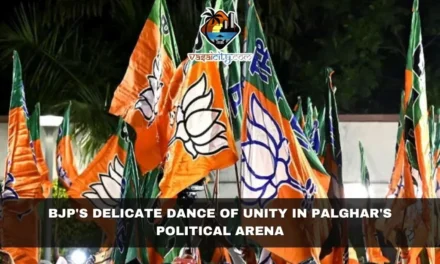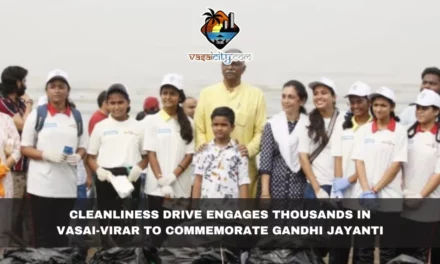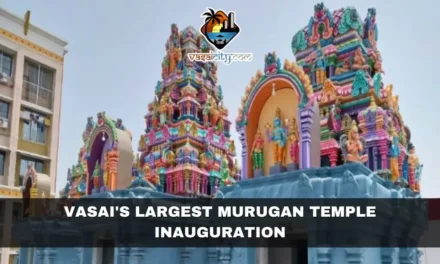In Vasai, a western suburb of Mumbai, a quiet piece of land designated for a multi-faith cemetery became the focal point of controversy, prompting authorities to shift the location of a planned helipad for India’s Home Minister Amit Shah. This decision came after intense protests by local Muslim organizations who regarded the site as sacred.
Home Minister Amit Shah was scheduled to attend a political rally on Monday in Vasai, campaigning for Dr. Hemant Savara, a candidate from the Mahayuti alliance in the Palghar constituency. As part of the preparations for his arrival, police had initially decided to construct a temporary helipad within the grounds of the multi-faith cemetery in Suncity, Vasai West, which spans an impressive 11 acres.
However, this plan encountered significant pushback from the local community, particularly after it was revealed that a portion of the cemetery had already been used for the burial of a member of the Muslim community, rendering the land consecrated in their eyes. Local Muslim organizations vocally opposed the use of this sacred ground for the construction of a helipad, arguing it was disrespectful and inappropriate. Faisal Qureshi, a local activist, was at the forefront of the protests. He expressed relief when the authorities decided to relocate the helipad following their demonstrations. “This place holds a spiritual significance for us since it already contains a grave. Building a helipad here was a mistake,” Qureshi explained.
The seriousness of the opposition led the police to reconsider their plans. Senior Police Inspector Raju Mane from the Manickpur Police Station announced the relocation of the helipad to Tokapada, an area close to the original site but without the same religious sensitivities. This move was intended to respect the concerns of the local community while still accommodating the logistical needs of the minister’s visit.
The controversy over the helipad location also led to alterations in the schedule of Minister Shah’s rally. Initially set for late morning, the event had its timing shifted multiple times, ultimately being pushed to 4:10 p.m. on Sunday. These adjustments were communicated as part of a revised itinerary designed to smooth over any logistical hiccups that might affect the gathering.
The incident in Vasai is a reflection of the delicate balance that often needs to be maintained in India’s diverse and multi-religious society. Sites that are considered sacred by one community can often be viewed differently by others, leading to conflicts that require sensitive handling by authorities. In this case, the prompt response by the local police to relocate the helipad after recognizing the community’s concerns likely prevented further escalation.
The resolution of this issue also underscores the importance of community engagement in planning and executing public events, especially in areas with diverse religious and cultural backgrounds. By listening to the grievances of the local Muslim organizations and acting upon them, the authorities demonstrated a commitment to maintaining communal harmony and respecting religious sentiments.
Moreover, the incident highlights the complex interplay between politics, religion, and local sentiments in Indian public life. As political figures navigate these intricate dynamics, the reactions of local communities continue to shape the political landscape, influencing decisions at even the highest levels of governance.
As the dust settles on this particular episode, both the authorities and the local community in Vasai will likely remain more attuned to the sensitivities surrounding the use of public and consecrated spaces. The peaceful resolution may also serve as a blueprint for handling similar situations elsewhere, ensuring that respect for religious sentiments is maintained while accommodating the practical necessities of modern political engagements.










